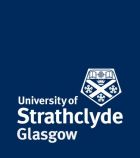Mathematics
Mathematics (from Greek μάθημα máthēma, "knowledge, study, learning") is the study of such topics as quantity, structure, space, and change. It has no generally accepted definition.
Statistics
Statistics is a branch of mathematics dealing with the collection, analysis, interpretation, presentation, and organization of data. In applying statistics to, for example, a scientific, industrial, or social problem, it is conventional to begin with a statistical population or a statistical model process to be studied. Populations can be diverse topics such as "all people living in a country" or "every atom composing a crystal". Statistics deals with all aspects of data including the planning of data collection in terms of the design of surveys and experiments. See glossary of probability and statistics.
Mathematics
Extension and abstraction without apparent direction or purpose is fundamental to the discipline. Applicability is not the reason we work, and plenty that is not applicable contributes to the beauty and magnificence of our subject.
Peter Rowlett, "The unplanned impact of mathematics", Nature 475, 2011, pp. 166-169.
Mathematics
Think of it: of the infinity of real numbers, those that are most important to mathematics—0, 1, √2, e and π—are located within less than four units on the number line. A remarkable coincidence? A mere detail in the Creator's grand design? I let the reader decide.
Eli Maor, e: The Story of a Number (1994)

